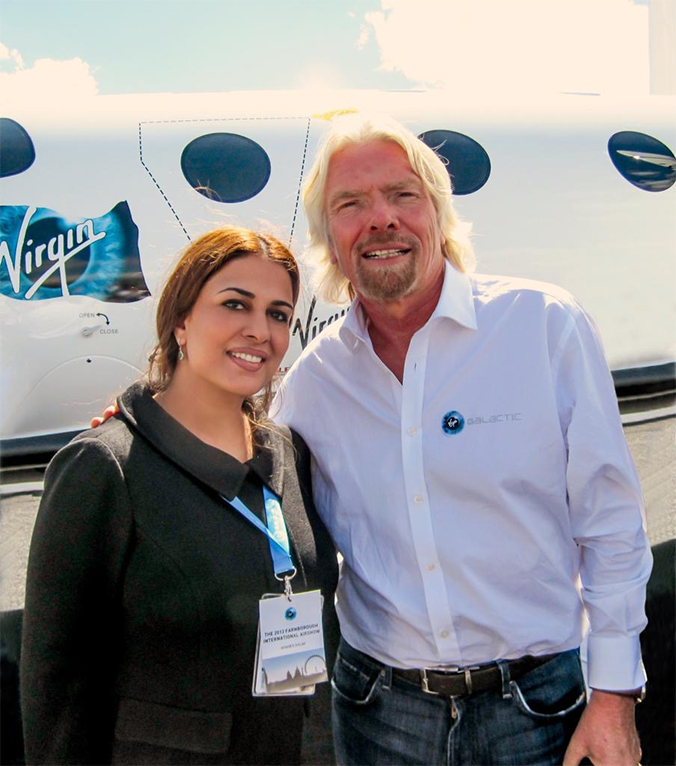ISLAMABAD: A female Pakistani adventurer is all set to become the first person from her country to embark on a space journey with Virgin Galactic’s private commercial spaceflight on October 5 after waiting for 17 years to realize her dream.
Virgin Galactic, a California-based spaceflight company founded in 2004, will launch its fourth commercial spaceflight next month which will have three space tourists from the United States, United Kingdom, and Pakistan.
Namira Salim, who lives in Dubai, will make history by becoming the first Pakistani to venture into space. Previously, she has hoisted the country’s green flag at the North and South Poles in 2007 and 2008, respectively, and earned the title of being the first Asian to skydive over Mount Everest.
In 2011, the Pakistan government officially recognized her remarkable achievements by bestowing upon her the Tamgha-e-Imtiaz, or Medal of Excellence. The aspiring astronaut also received the Femina Middle East Women Award in 2016 for her unstoppable passion for space exploration.
“In January 2006, I signed a contract with Virgin Galactic and purchased my ticket,” she told Arab News in a telephonic interview on Sunday from Dubai. “But who knew at that time it would take 17 years to materialize this dream.”
“Last week, I visited Pakistan to officially receive the green flag that I will be taking with me during the space journey,” she continued. “Flying the green flag high will be a great honor for me.”

The photograph taken in 2012 shows Pakistani adventurer Namira Salim (left) posing for a picture with Virgin Group's founder Richard Branson in Dubai, UAE. (Photo courtesy: Namira Salim)
Salim said she paid $200,000 for the ticket in 2006, though the current price for the same flight was $450,000.
She informed that her training session was scheduled at a private spaceport in New Mexico, alongside her fellow American and British travelers.
“Our mission involves breaking orbit and re-entering the atmosphere,” she said. “Such flights typically take nine to 11 minutes with ground-up rocket launches. However, our flight differs as our spaceship will be carried to 50,000 feet by a mothership before it is released, igniting the rocket motor engine to reach space from that altitude.”
Asked about her passion for space, Salim said it was her childhood dream since her father, an army man, introduced her to the pole star and taught her about constellations in the northern sky.
“I always say that space is in my DNA,” she said. “When I was very young, I used to tell my parents that I did not want to play with toys. I wanted to go to space and, by the time I turned 14, my father bought me my first telescope.”
She said Pakistan should follow the example of new space nations, such as the United Arab Emirates and Saudi Arabia, who were opening up to commercial space ventures to create opportunities for human spaceflight.
“The UAE and Saudi Arabia have made impressive strides in embracing the new space age and the commercialization of space,” she noted, adding that both had harnessed the opportunities of this era and delivered their benefits to people.
“The UAE’s first astronaut and Saudi Arabia’s recent missions, including sending both male and female astronauts, have been inspiring for their entire nations,” she added.
When asked about her future plans, Salim mentioned a project involving the development of a three-unit cube satellite, in collaboration with university students. The initiative, she informed, was led by her nonprofit, Space Trust.
“The project, known as ‘Zero G 2030,’ represents the first peace mission to space where we will carry messages of peace in this student-built satellite into orbit, along with collaboration from two university partners, the University of Nairobi in Kenya and the University of Arizona in the US,” she said.
Salim added that the United Nations has sponsored the launch of this small satellite in recognition of her contributions to the global space industry.



















